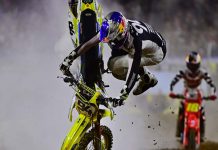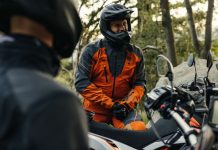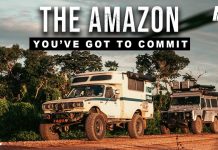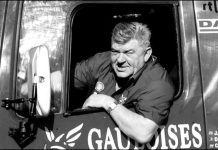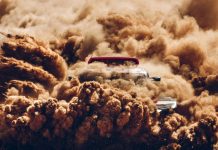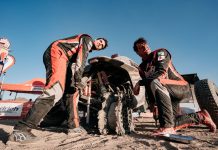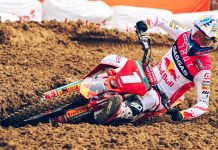Zwei Nordlichter machen sich auf den Weg und erfüllen sich ihren Jugendtraum. Stephan und Thomas Preuss, zwei Hamburger Jungs, plaudern mit Sascha Christof aus dem Nähkästchen.
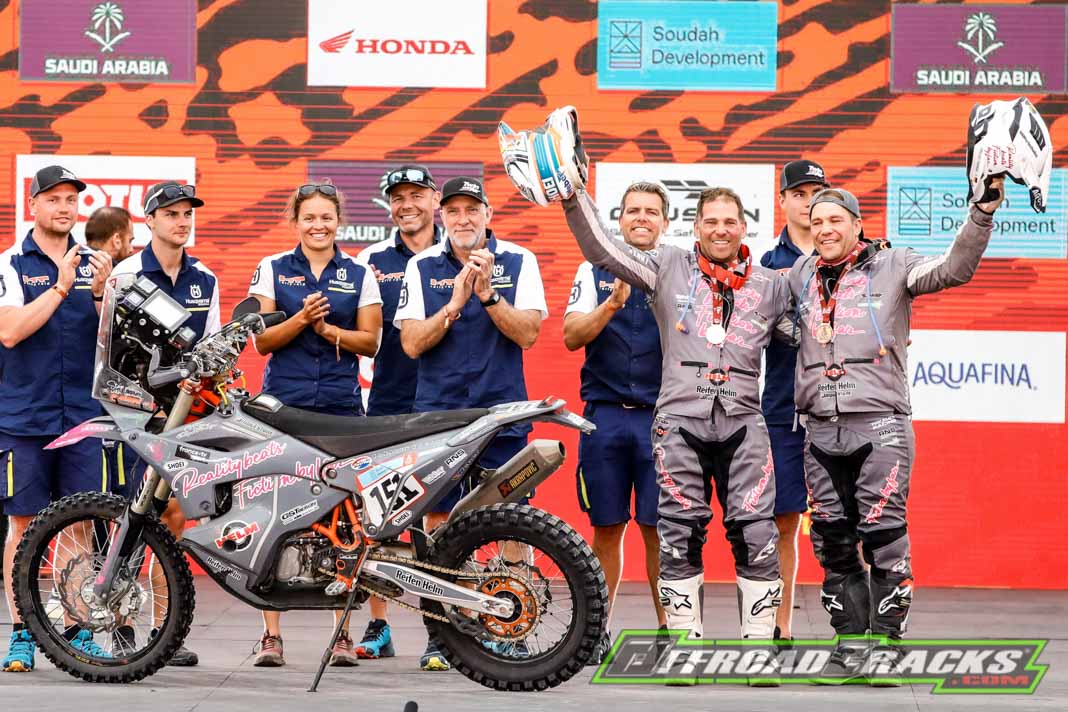
8404 Kilometer über zwölf Etappen ist die Herausforderung die Stephan und Thomas sich gestellt haben. Dass man die Dakar nicht mal eben so mittels kurzfristiger Nennung in Angriff nehmen kann dürfte jedem klar sein. Doch der Aufwand im Hintergrund ist erheblicher als man denkt. Dabei spreche ich vorerst nicht von der Bereitstellung der finanziellen Mittel, sondern überhaupt in den illustren Kreis der Teilnehmer eintauchen zu dürfen. Denn dafür mussten sich beide klassisch mit einem Bewerbungsschreiben bei David Castera – Race Direktor – quasi empfehlen. Richtig gehört! Es reicht nicht mal eben so 15.700 Euro Startgebühr pro Teilnehmer auf den Tisch zu legen, sondern man muss nachweisen, dass man für die Dakar nicht nur interessant ist, sondern auch die entsprechende Rally-Erfahrung zur Bewältigung der Mutter aller Rallyes mitbringt. Und diese unverbindliche Vorab-Qualifikation bekommt man, wenn man bereits bei der Dakar am Start war, die Andalusien- oder Marokko-Rallye oder mehrere Läufe der FIM Cross-Country Rallies World Championship als Qualifikationslauf bestritten hat oder einem Werksteam angehört. Letztendlich entscheidet aber immer die unabhängig agierende Event-Agentur A.S.O. samt Komitee wer einen der 170 begehrten Startplätze ergattert.
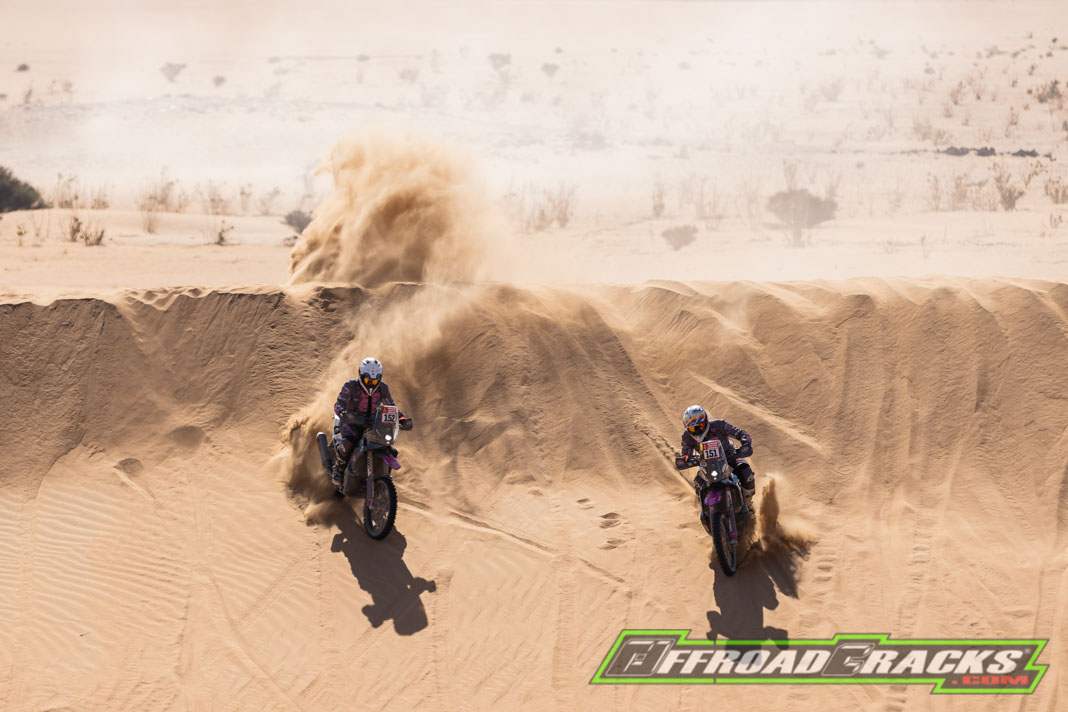
Die Vorgeschichte: Thomas und Stephan Preuss verfolgen den Spirit der Dakar seit 1984 in allen Medien und träumten schon als junge Endurofahrer davon einmal dieses Abenteuer bestreiten zu dürfen. 2020 war es dann endlich soweit, so dass man an der Startlinie der Dakar stehen wollte. Doch leider musste durch Unsicherheiten mit Covid-19 das Dakar-Debüt auf 2021 verschoben werden. In 2021 konnten wir dann aus beruflichen Gründen nicht starten, so dass letztendlich eine erneute Verschiebung auf 2022 notwendig wurde. Natürlich musste man sich zunächst finanziell absichern, denn so eine Dakar-Teilnahme verschlingt schnell mal 100.000 Euro inklusive Bike je Teilnehmer und abhängig vom Service-Paket. Hinzu kommen das volle Training sowie die administrativen Aufgaben, die einem Full-Time-Job neben der täglichen Arbeit gleichkommen. Über 6000 Kilometer auf dem Fahrrad wurden neben dem täglichen Alltag absolviert. Das hieß täglich mit dem Mountainbike an der Alster entlang von der Wohnstätte zum Arbeitsplatz und wieder zurück. Fitness-Studios waren wegen Covid-19 geschlossen, so dass man sich ein Rudergerät anschaffte, um sich im hauseigenen Keller zwei- bis dreimal die Woche 45 Minuten lang quälen zu können und sich zeitgleich durch Dakar-Videos motivierte. Jedes Wochenende ging es mit der Sportenduro zum Enduro- und Motocross-Training.
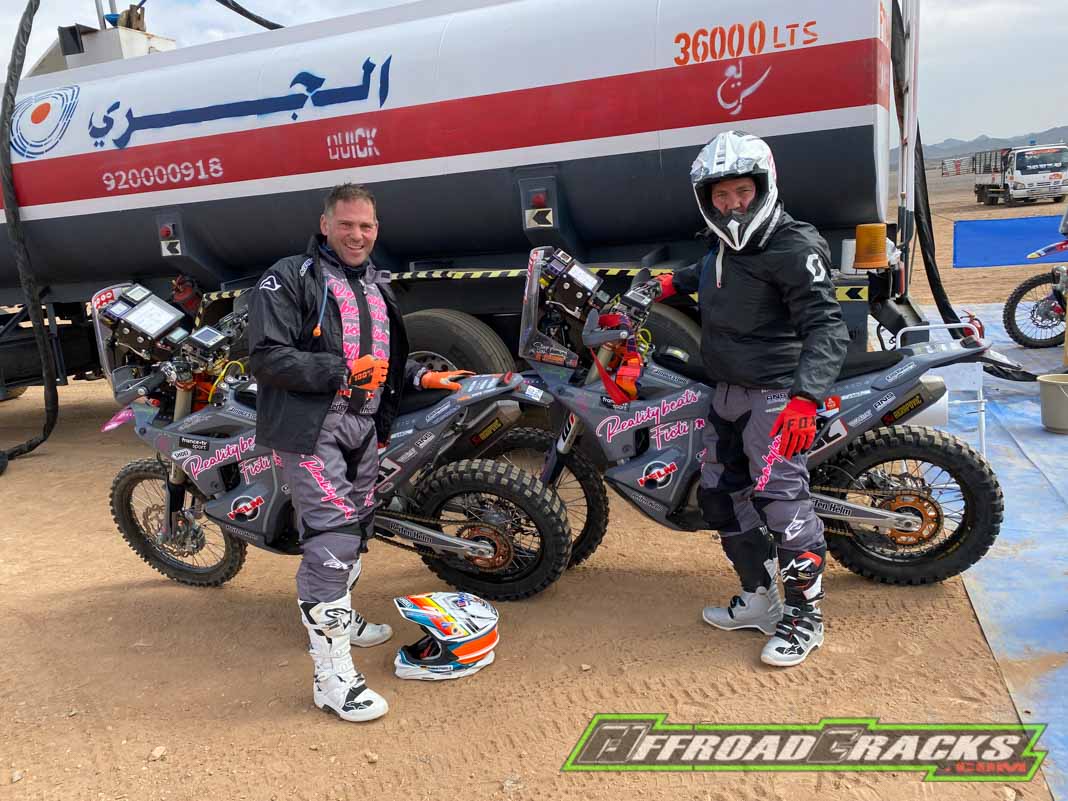
Für das Navigationstraining hat man sich extra bei KTM Rally Teamchef Jordi Viladoms in Igualada bei Barcelona eingebucht und sich vom Experten auf den KTM Factory Trainingsstrecken entsprechend schulen lassen. Stephan und Thomas haben sich natürlich in den Jahren zuvor schon einiges an Rally-Erfahrung zugelegt. Ob bei der Tuareg Rallye, El Chott in Tunesien, Abu Dhabi Desert Challenge oder die Hellas Rallye in Griechenland, um nur einige zu nennen. Doch noch viel härter ist die Erledigung des Papierkrams, so Stephan. Speziell die Beschaffung von Lizenzen über den DMSB war nicht ganz einfach, da für die notwendige internationale A-Lizenz eigentlich ein entsprechender sportlicher Werdegang Grundlage ist. Leider gibt es in Deutschland keinen nationalen Marathon Rallyesport in dem man sich für die Rallye WM qualifizieren kann. Weiter gehts mit der Zusammenstellung des Equipments, der Informationsaustausch mit ehemaligen Teilnehmern und sämtliches Papierwerk für die Nennung, Abnahme und Absicherung. Versicherungstechnisch ist man bis 30.000 Euro durch die Startgebühr der A.S.O abgesichert, was aus der Erfahrung anderer Teilnehmer heraus im „worst case“ ohne Probleme ausreicht. Natürlich hatte man für den Notfall ein entsprechendes Backup für die Familie hinterlegt, so dass auch kurzfristig und maximal von Deutschland aus gehandelt werden konnte. Von Anfang an war man sich im Klaren, dass jeder Tag bei der Dakar als eine sehr intensive Endurotour mit einem einmaligen Abenteuer-Charakter und maximaler Priorität auf Ankommen angesehen wurde. Platzierungen waren hier nie Gegenstand dieses Abenteuers! Zumal man mit fast 50 Jahren aus den jugendlichen schwindeligen Träumen einmal Factory-Fahrer zu werden schon längst heraus war.
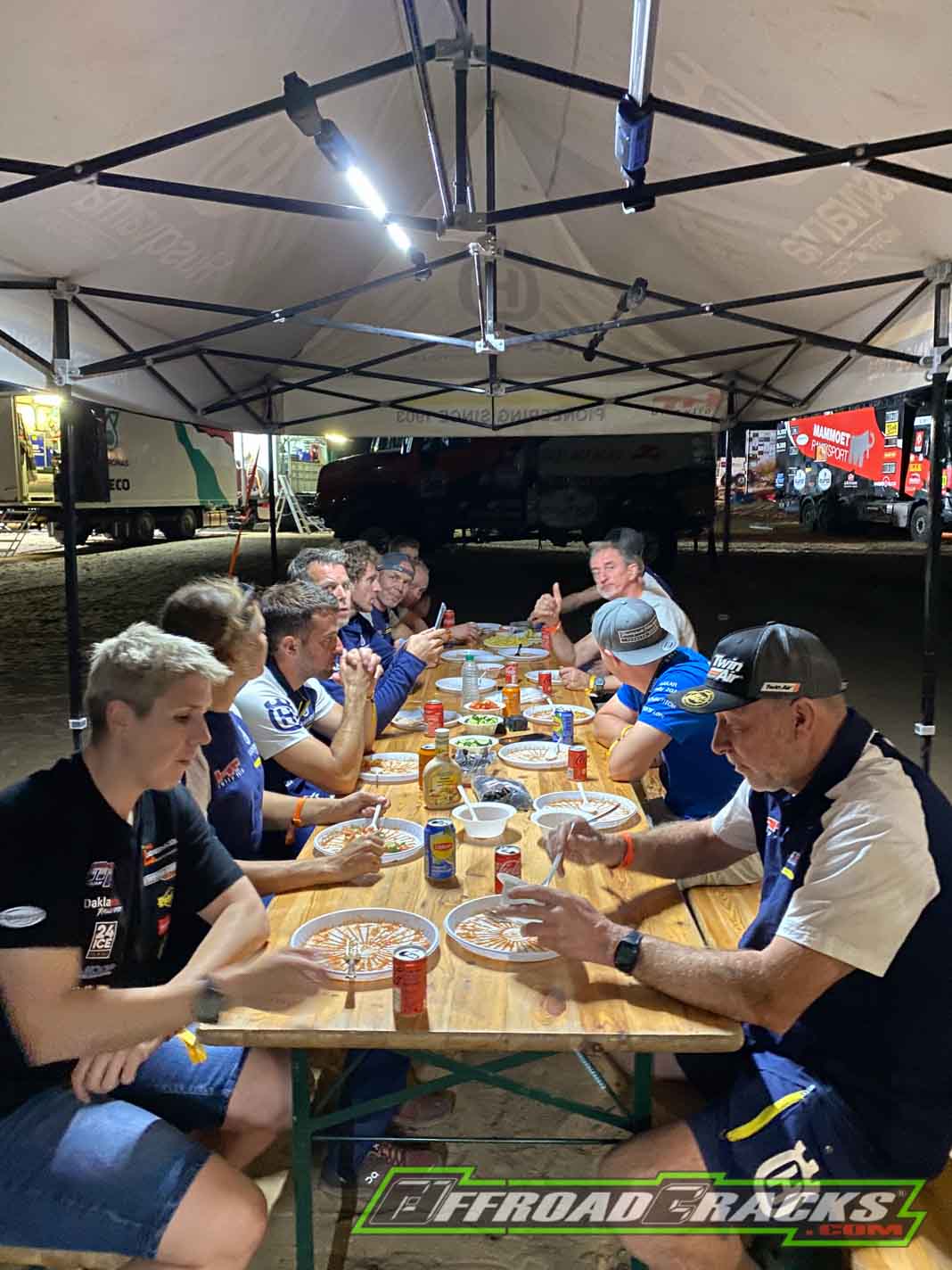
Nachdem über das holländische HT Rally Raid Team der Service und Logistik gebucht wurde, war diesbezüglich ein professioneller Partner mit immenser Erfahrung im Hintergrund tätig und sorgte für die notwendige Freiheit sich nur auf das Event, Land und Leute konzentrieren zu dürfen. Ein gewisser Luxus gegenüber der wohl günstigsten Einstiegsklasse in die Dakar, die „Malle Moto/Original by Motul“, bei der die Fahrer alle Arbeiten mit begrenzten Mitteln selbst durchführen müssen. Das bedeutet aber dennoch nicht, dass Stephan und Thomas eine Kaffeefahrt vor sich hatten: Tägliches Wecken zwischen 3:30 und 5:30 Uhr am Morgen, einkleiden und frühstücken. Anschließend Prüfen der Ausrüstung samt Proviant und los ging’s vom Fahrerlager zum Vorstart im Bivouac. Gefolgt von heftigen Verbindungsetappen bei im Schnitt vier Grad Lufttemperatur und Distanzen von 250 bis 400 Kilometern, um dann durchgefroren bei Sonnenaufgang den Start der Sonderprüfung zu erreichen. Dann hieß es zwischen 350 und 465 Kilometer auf Zeit zu absolvieren. Ankommen ohne Verletzungen und technische Ausfälle war das hoch gesteckte Ziel und möglichst vor Sonnenuntergang die Special Stage zu beenden, um anschließend möglichst schnell das mitgeführte Recovery-Protein Shake mit dem Wasser von der Orga anzumischen und aufzunehmen. Denn dann mussten erneut zwischen 70 und 300 Kilometer zurück ins Bivouac bewältigt werden – mit dem Protein aus dem Shake kann der Körper schon auf der Verbindungsetappe beginnen zu regenerieren. Das war aber noch nicht das Ende des Tages, denn dann folgte das Briefing von Service und Mechanikern, Duschen, Abendessen und die persönliche Kleidung samt Ausrüstung und Proviant wieder auf Vordermann bringen. Nicht zu vergessen die abendliche Teambesprechung samt Pflicht-Airbag aufladen und zwischen 18:30 und 21 Uhr ab auf die Matratze. Ergebnis des schweißtreibenden Abenteuers: Stephan kam ohne einen Sturz ins Ziel, während sich Thomas zwei kleinere genehmigte und sich eine Bänderdehnung zuzog.
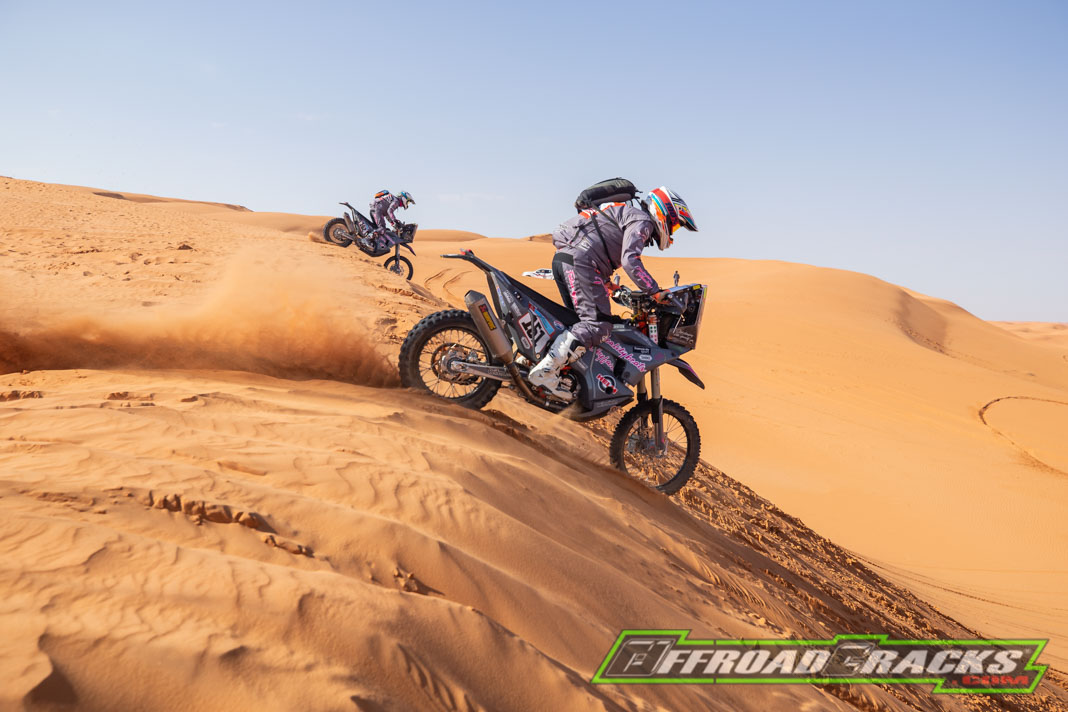
Fazit der Preuss-Brüder: Jeder der davon träumt einmal die Dakar zu erleben, sollten nicht zögern und alles daran setzen diesen Traum umzusetzen. Dieses Erlebnis ändert einfach alles nachhaltig und grundsätzlich. Man ist danach ein anderer Mensch – absolut positiv verändert, so Stephan und Thomas. Organisatorisch gehört dieses Event sicherlich zum Besten vom Besten, ob von der medizinischen Seite, der Nähe zu den Teilnehmern, das Kümmern um Belange jeder Art bis hin zur Versorgung mit qualitativ hochwertigem Kraftstoff, sowie super Essen und Trinken. Nicht zu vergessen: Die Saudi-Arabische Bevölkerung ist ein begeistertes Publikum, die mit ihrer unendlichen Gastfreundschaft begeistert, was man sich in unseren Gefilden so manchmal wünschen würde.
Daten & Fakten
- Gestartete Fahrer (Bikes) 2022: 168
- Angekommene Fahrer (Bikes) 2022: 124
- Ausfallquote Bikes 2022: 26,2%
- Distanz 2022: 4129 km Sonderprüfungen, 4275 km Verbindungsetappe; 8404 km Gesamt
- 12 Etappen & 1 Ruhetag
- Rookie 2022: Mason Klein (USA, 9. Platz) KTM
- Legend 2022: Pablo Quintanilla (CHL, 2. Platz) Honda Factory
- Malle Moto / Original by Motul: Arunas Gelazninkas (LTU, 28. Platz) KTM
- Stephan Preuss Platz 109
- Thomas Preuss Platz 121
Bildergallerie – DAKAR 2022
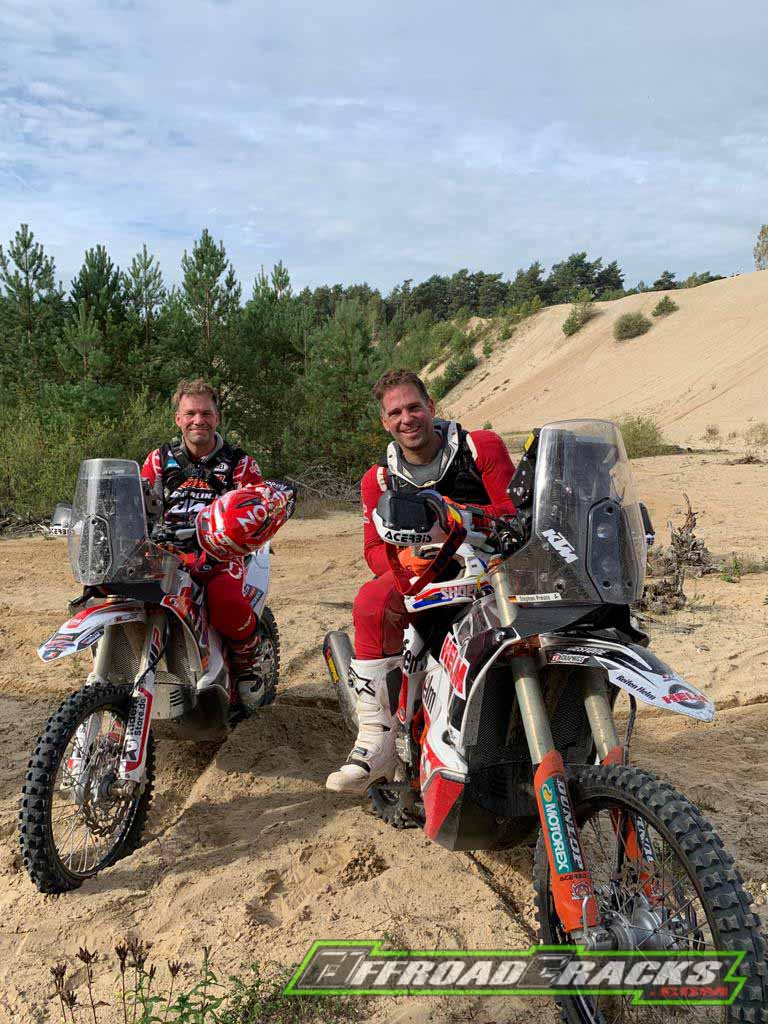
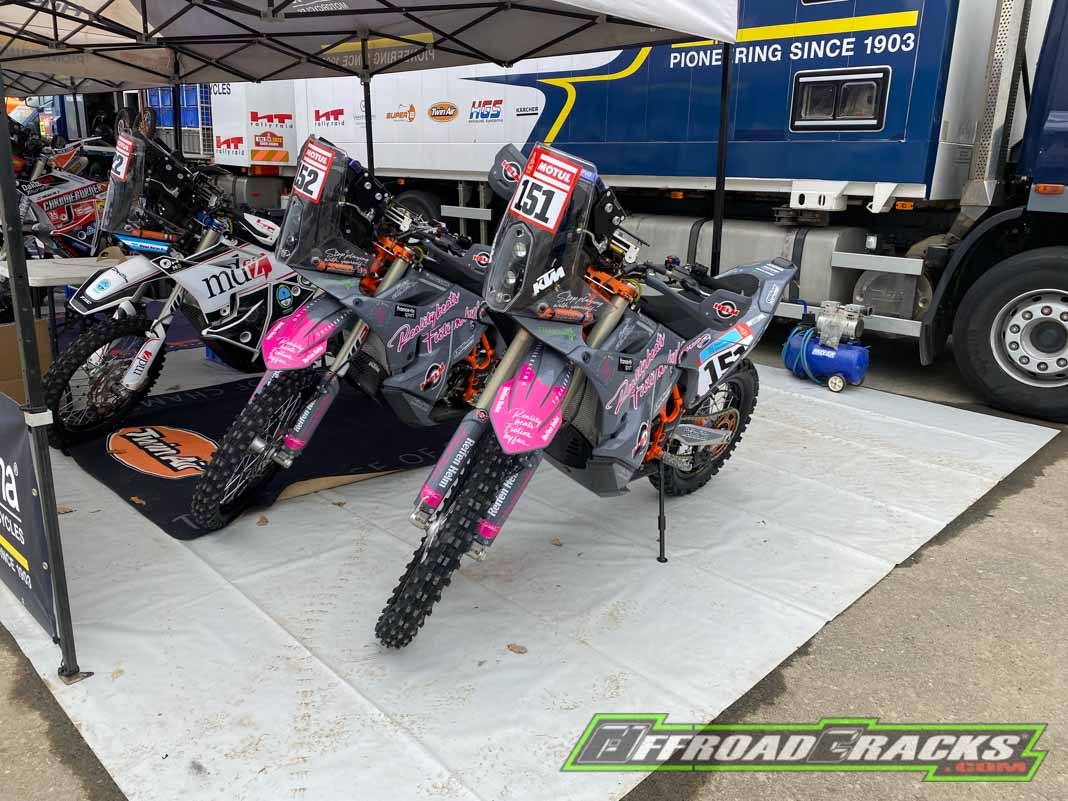
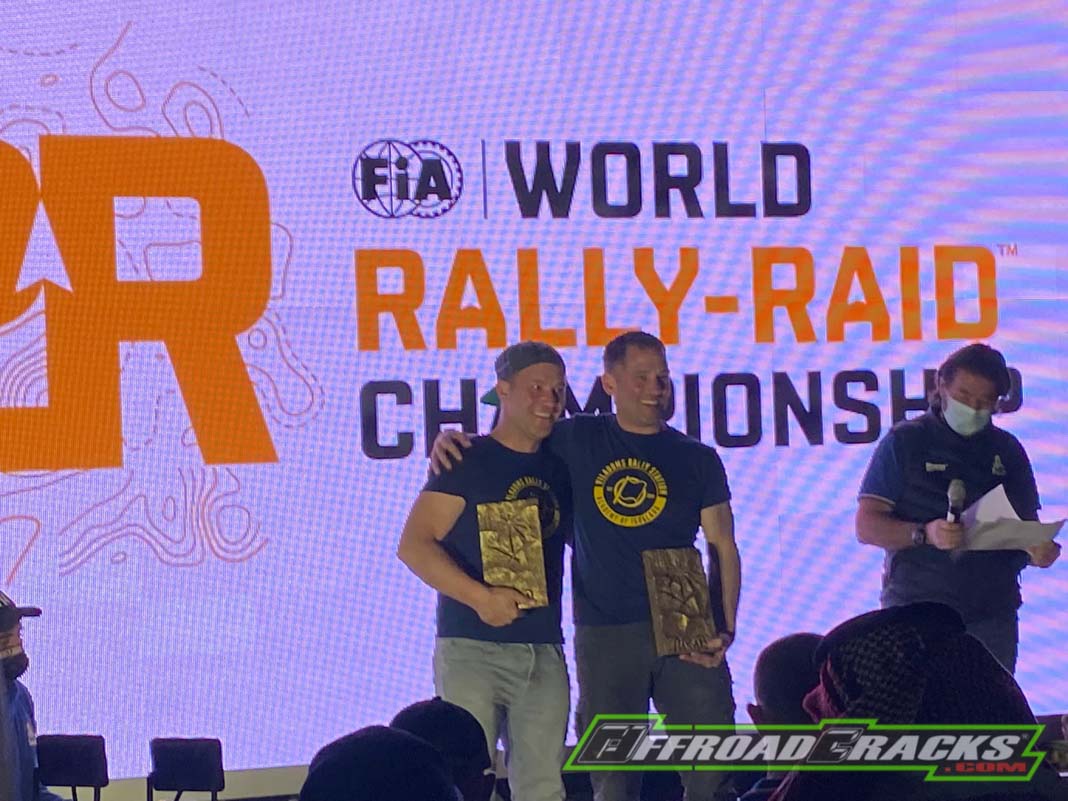
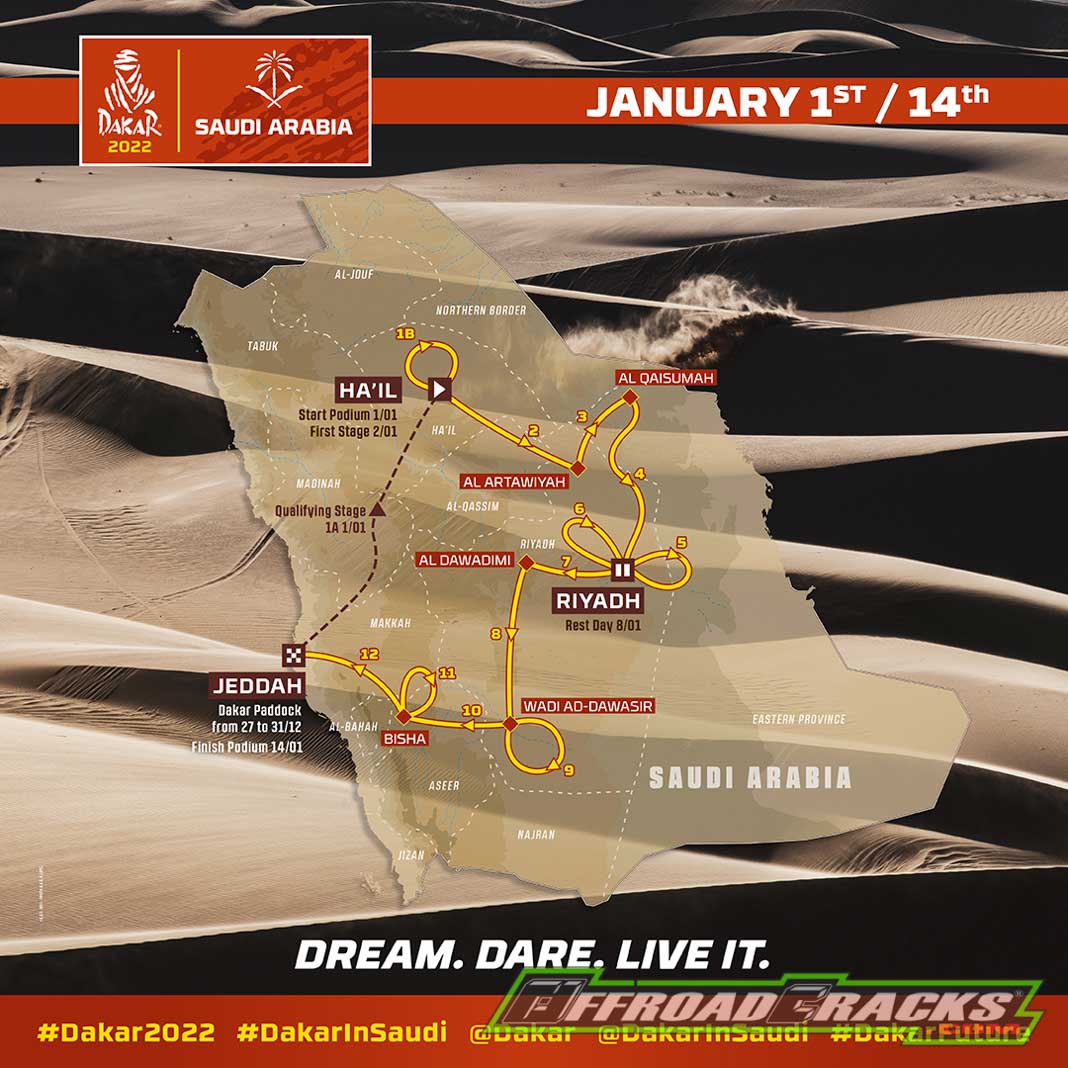
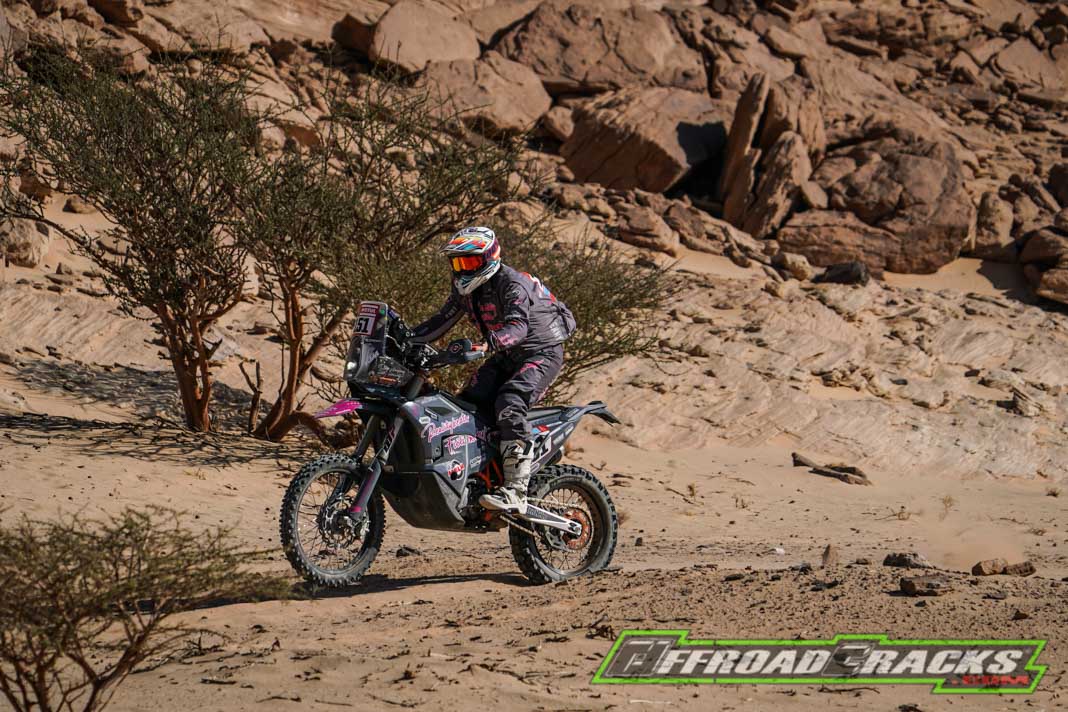
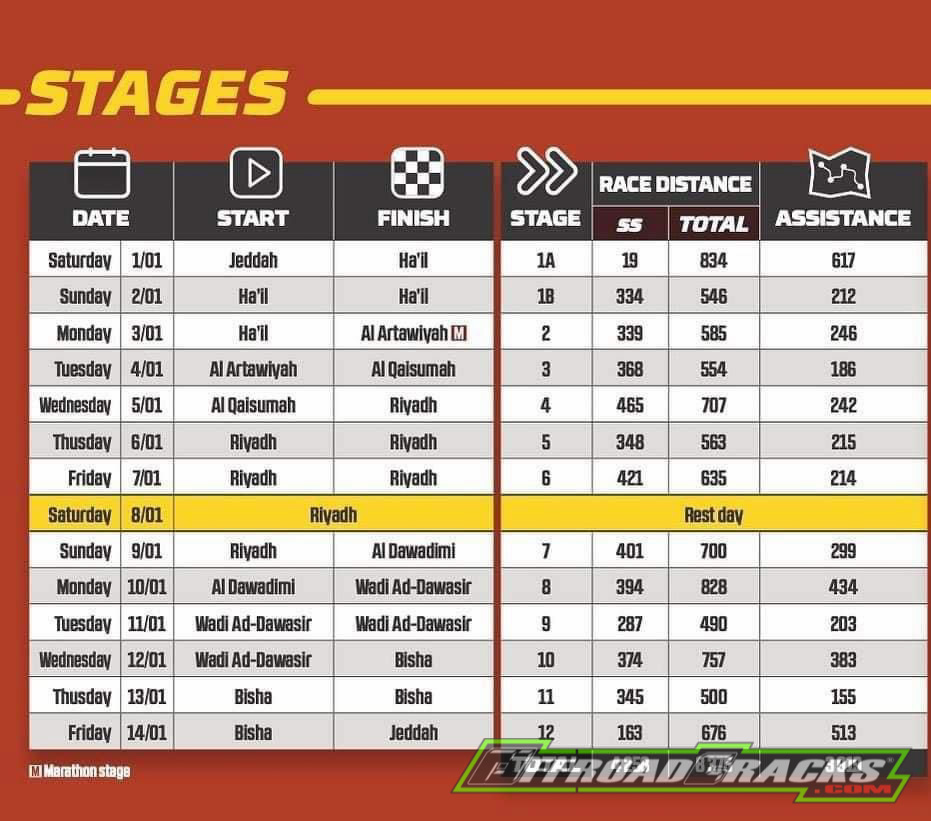

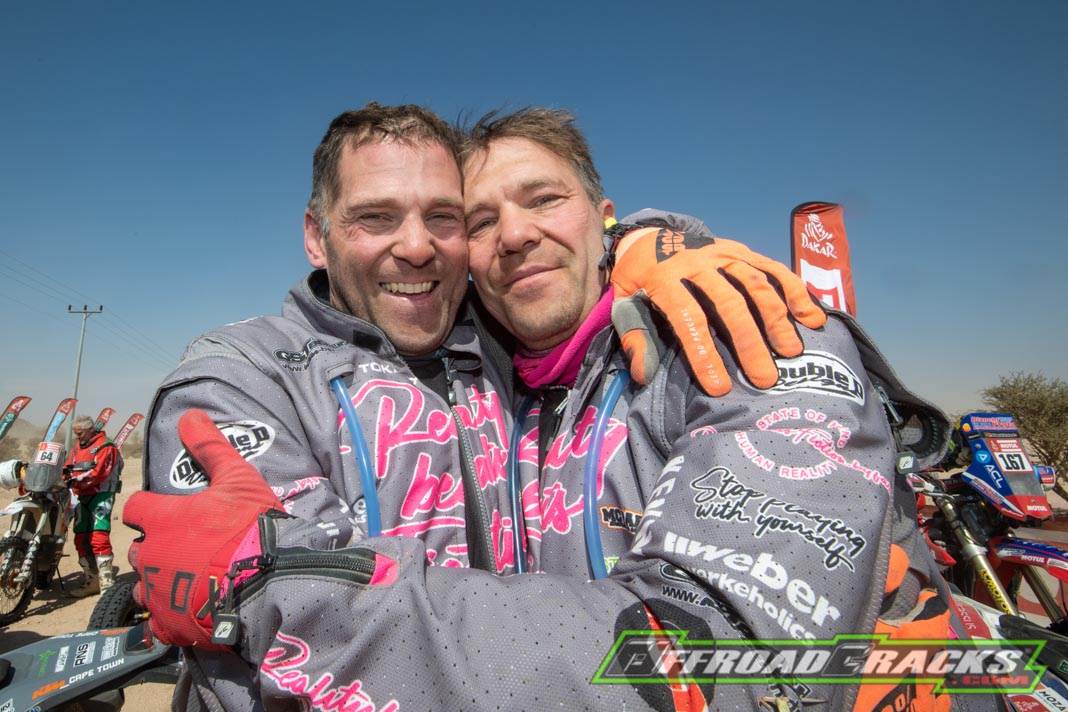
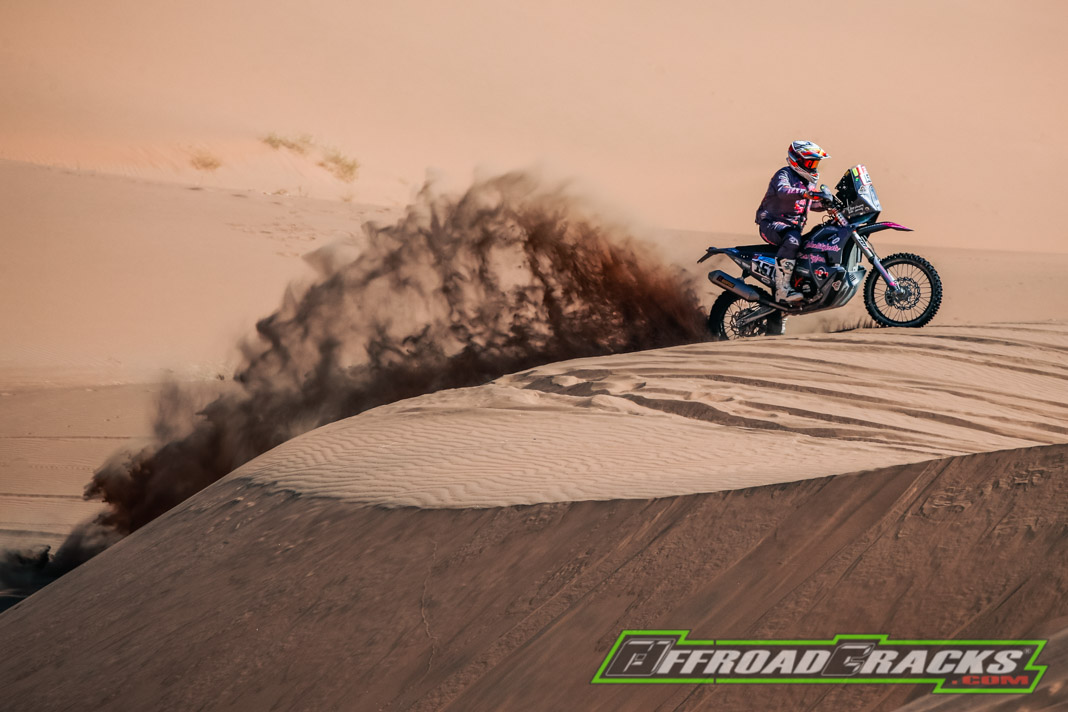
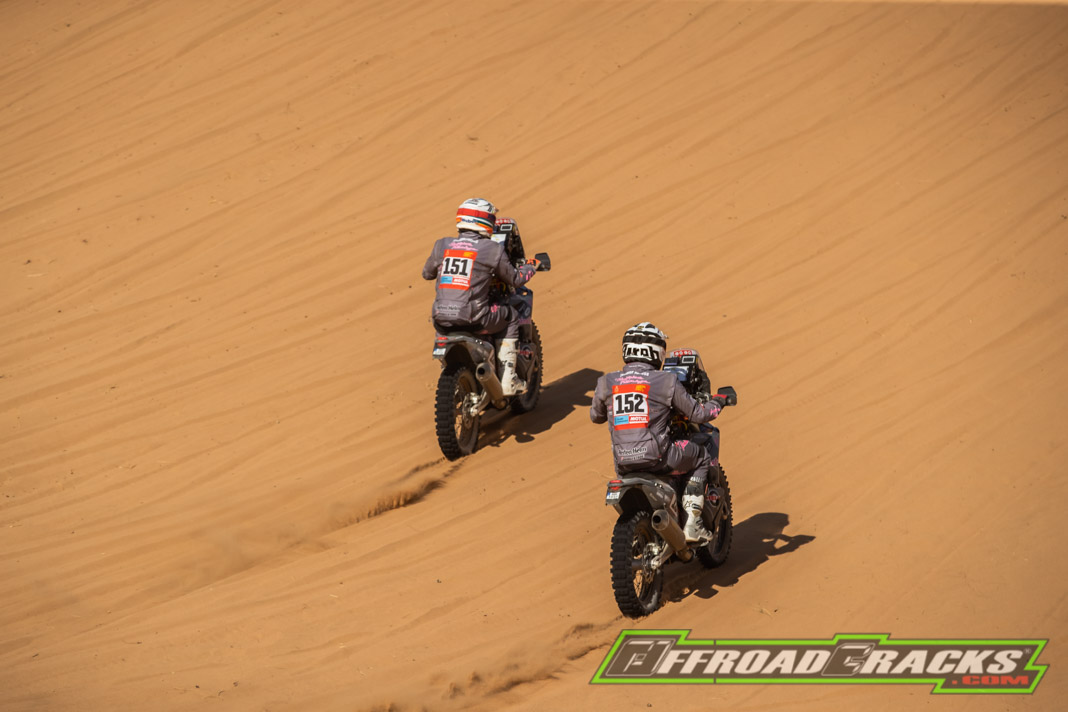
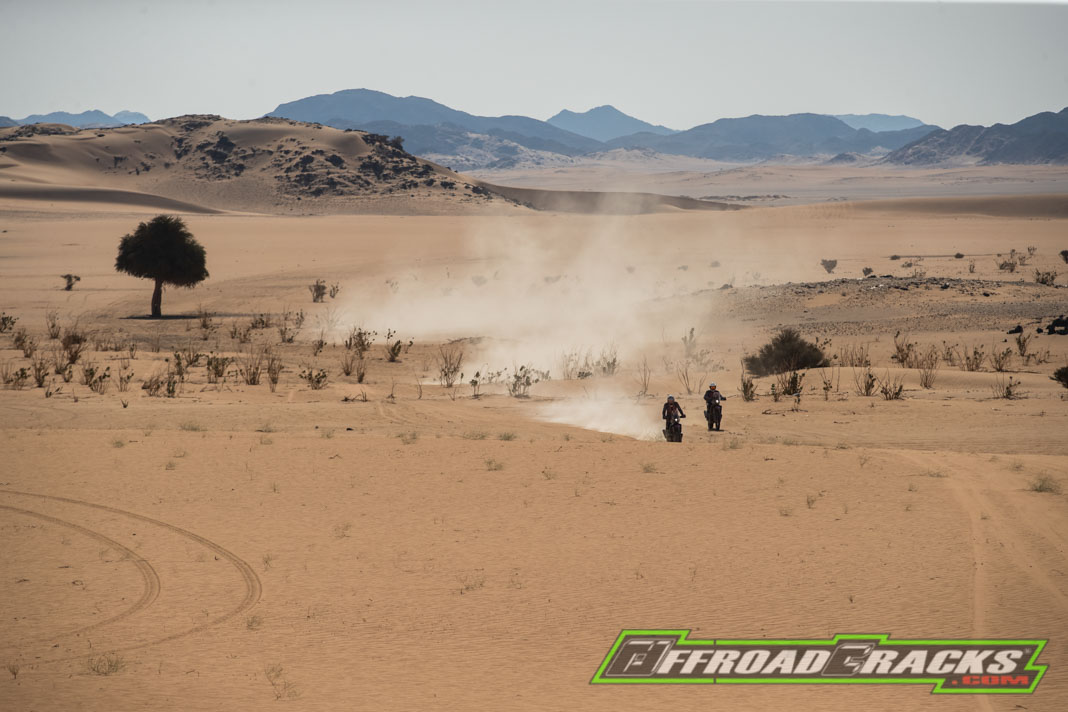

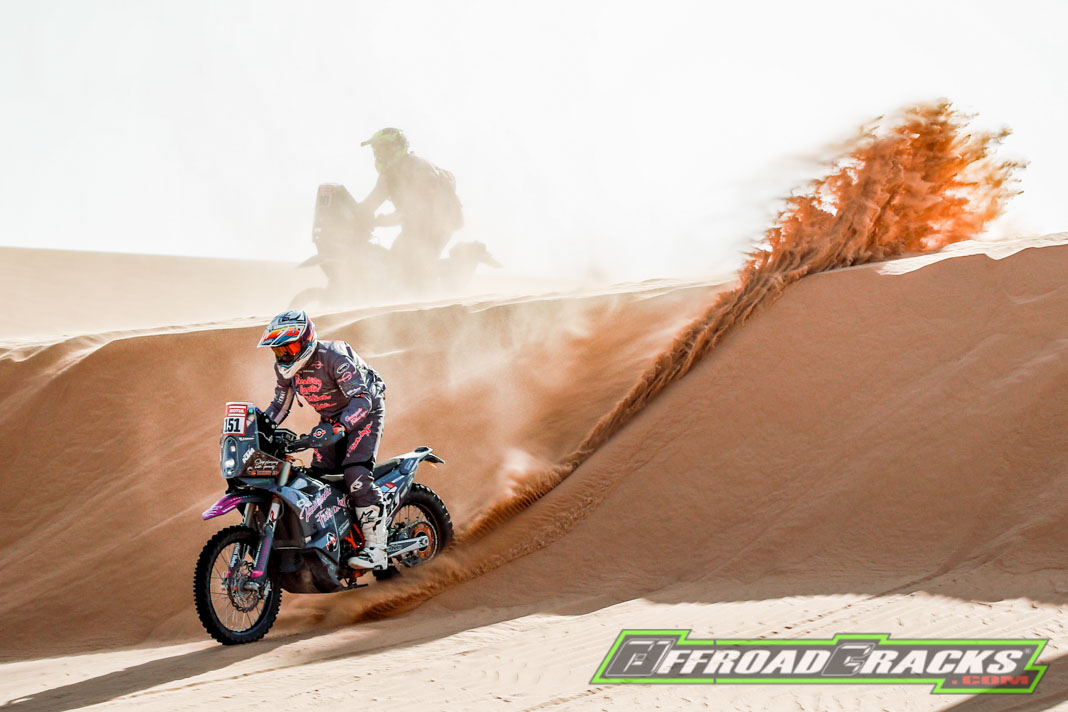
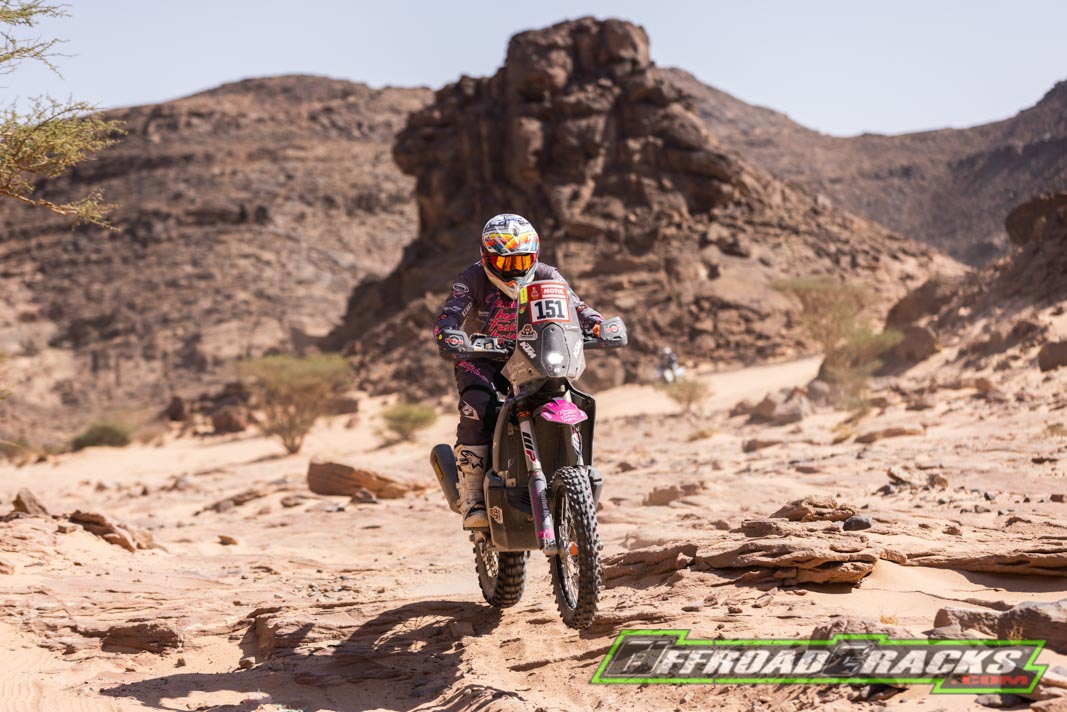
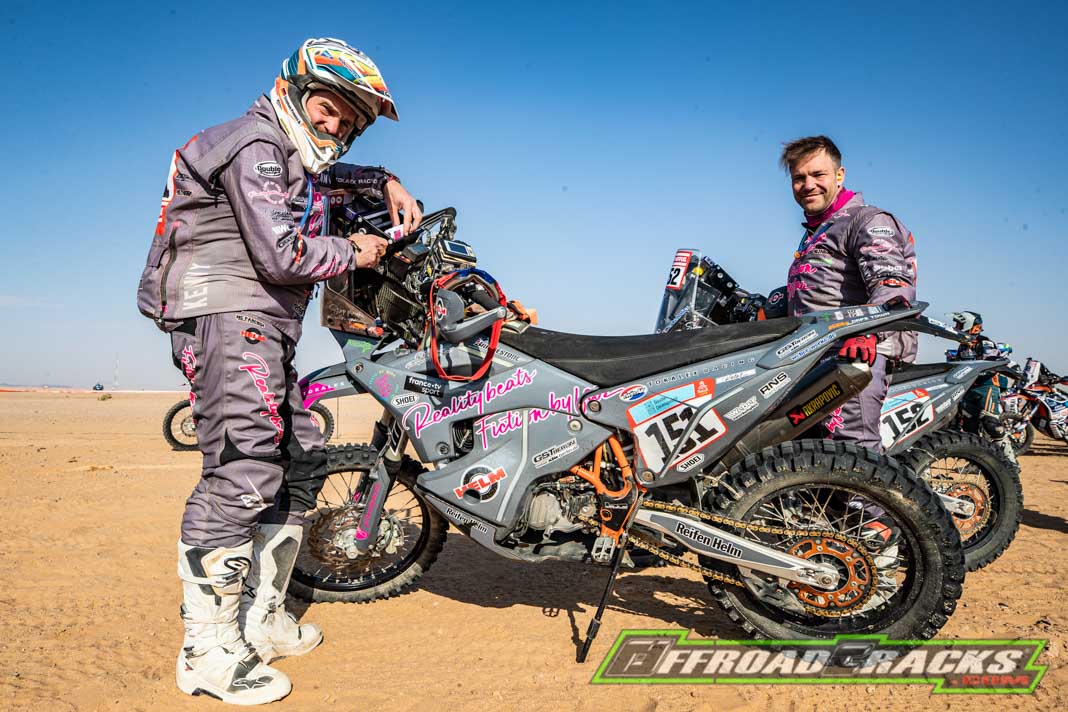
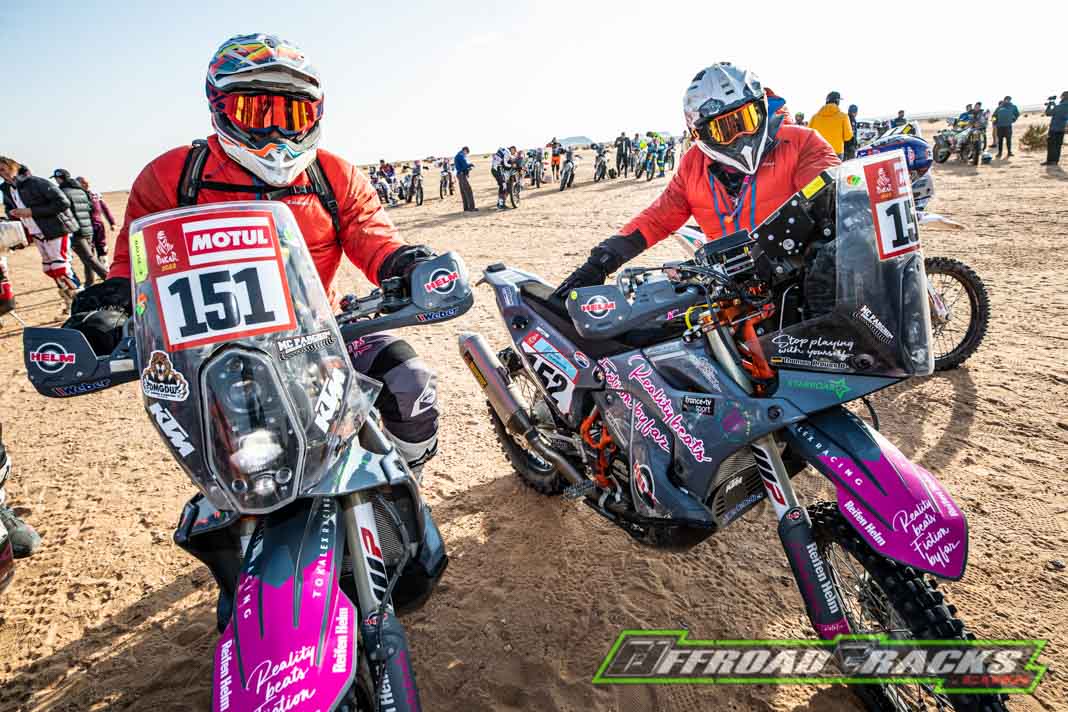
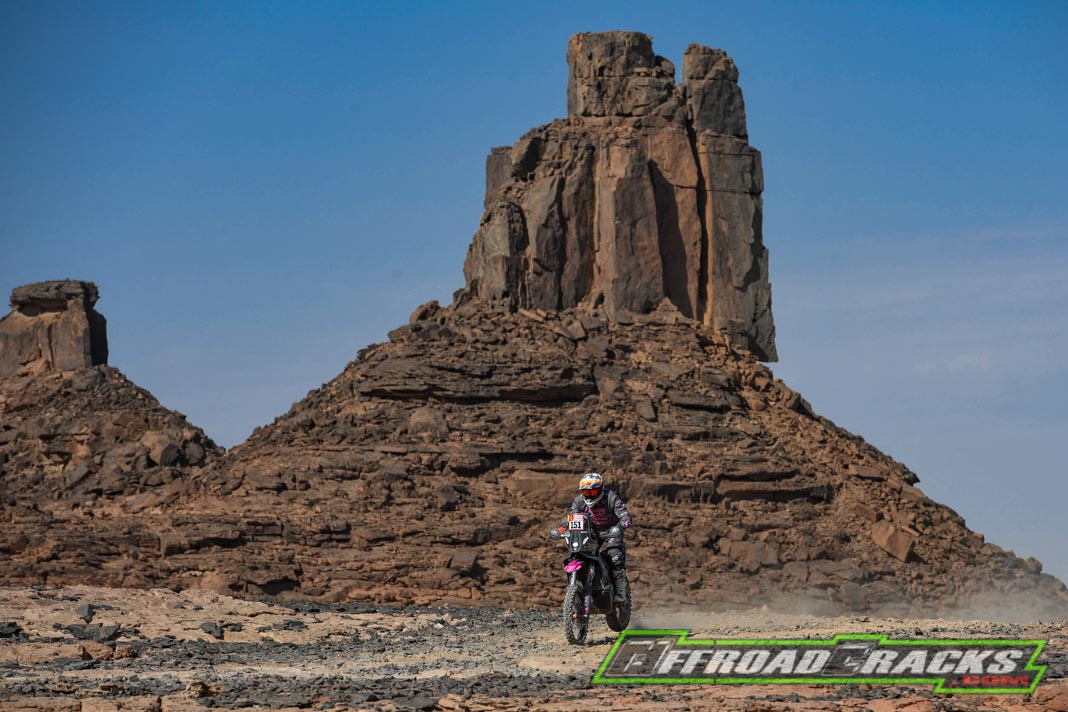
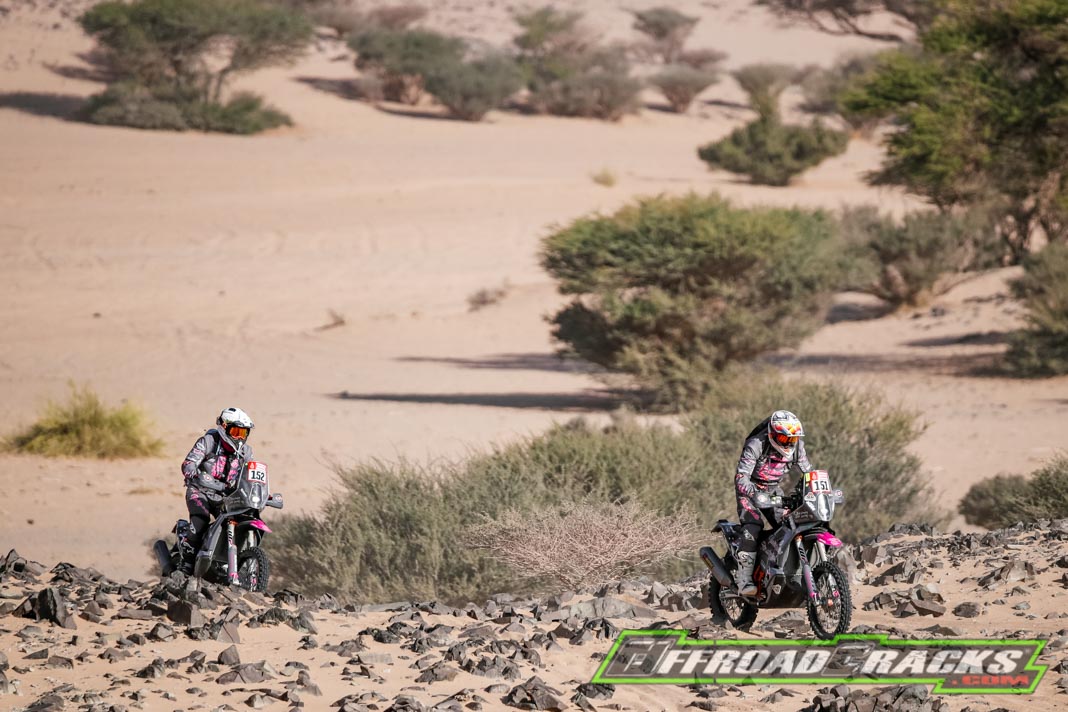
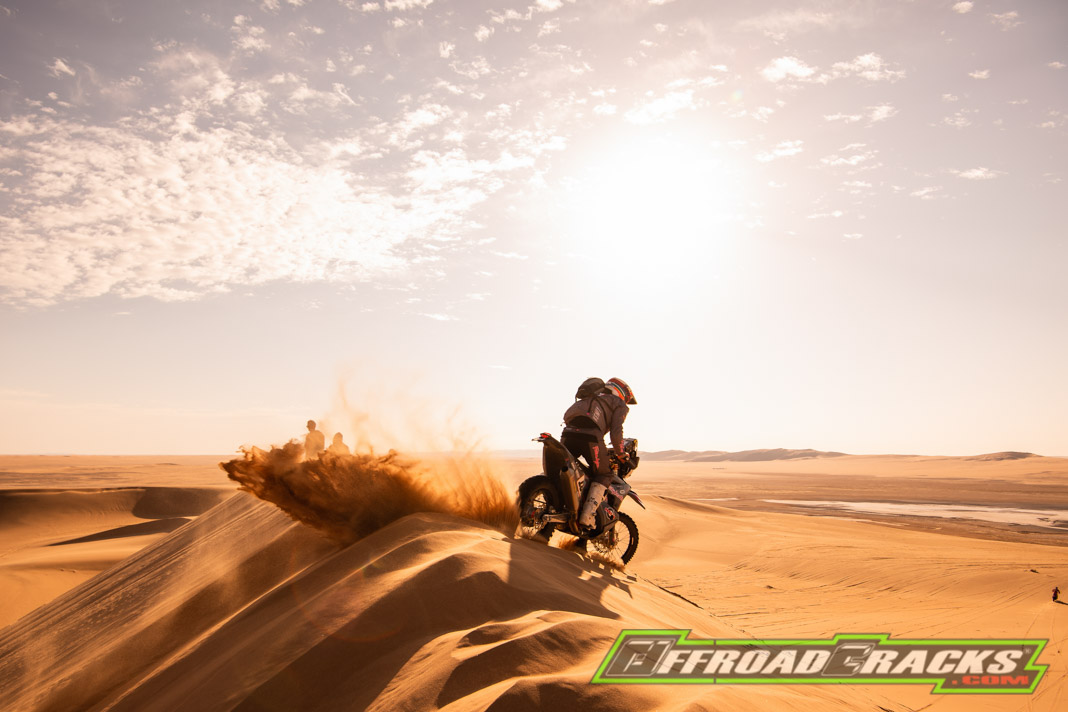
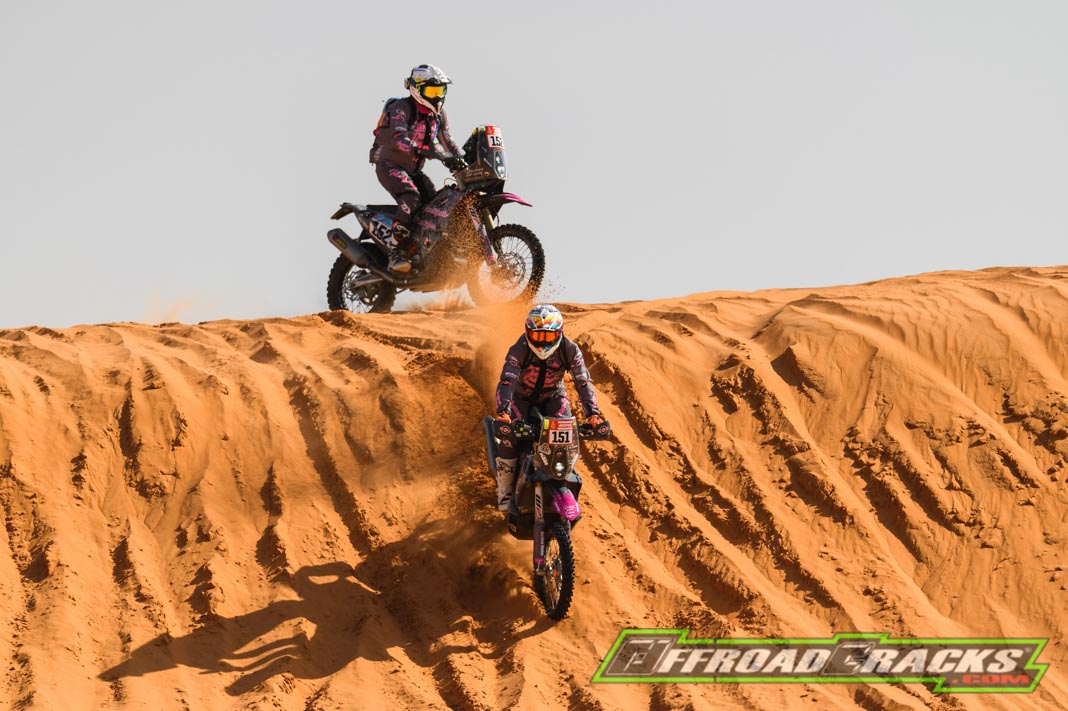

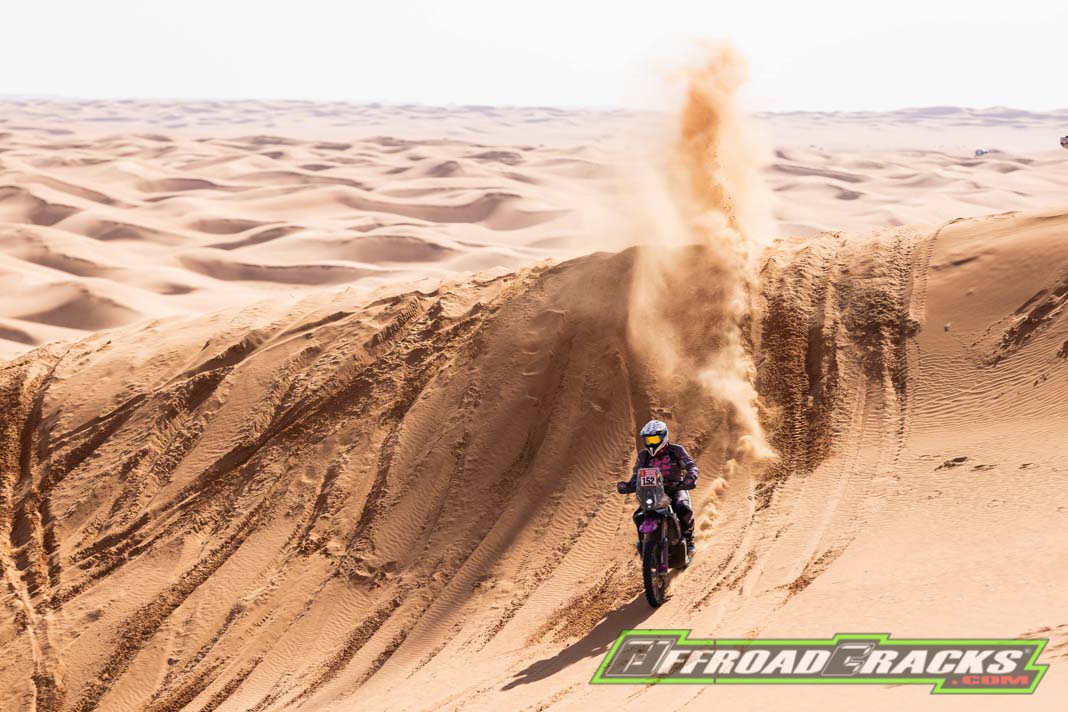
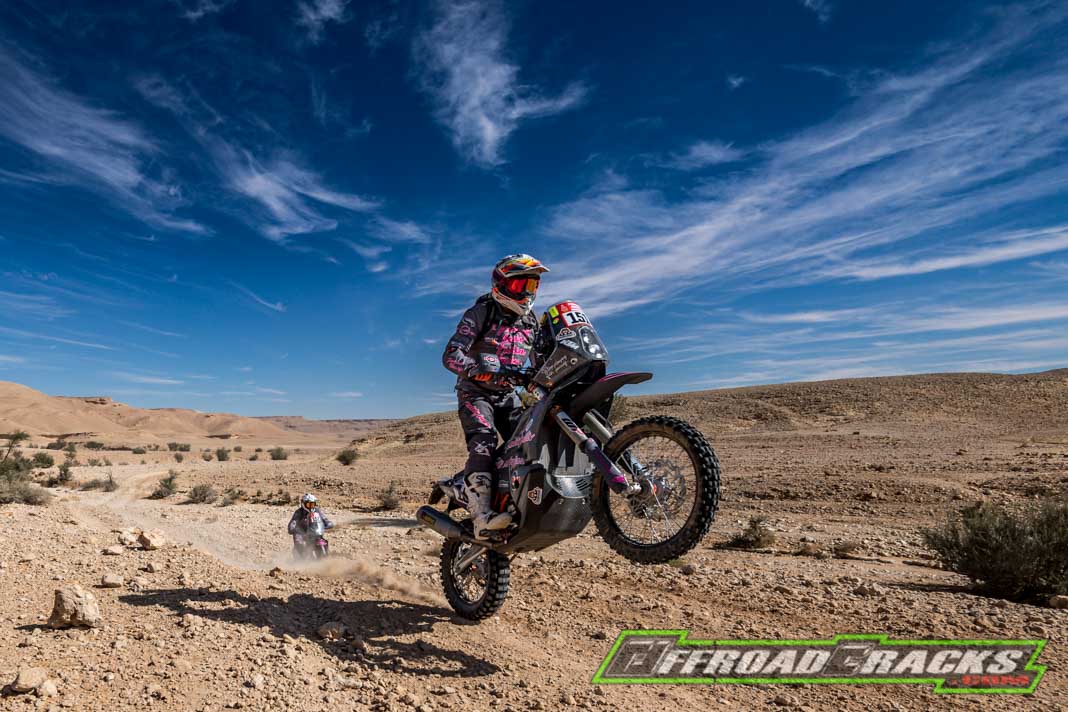
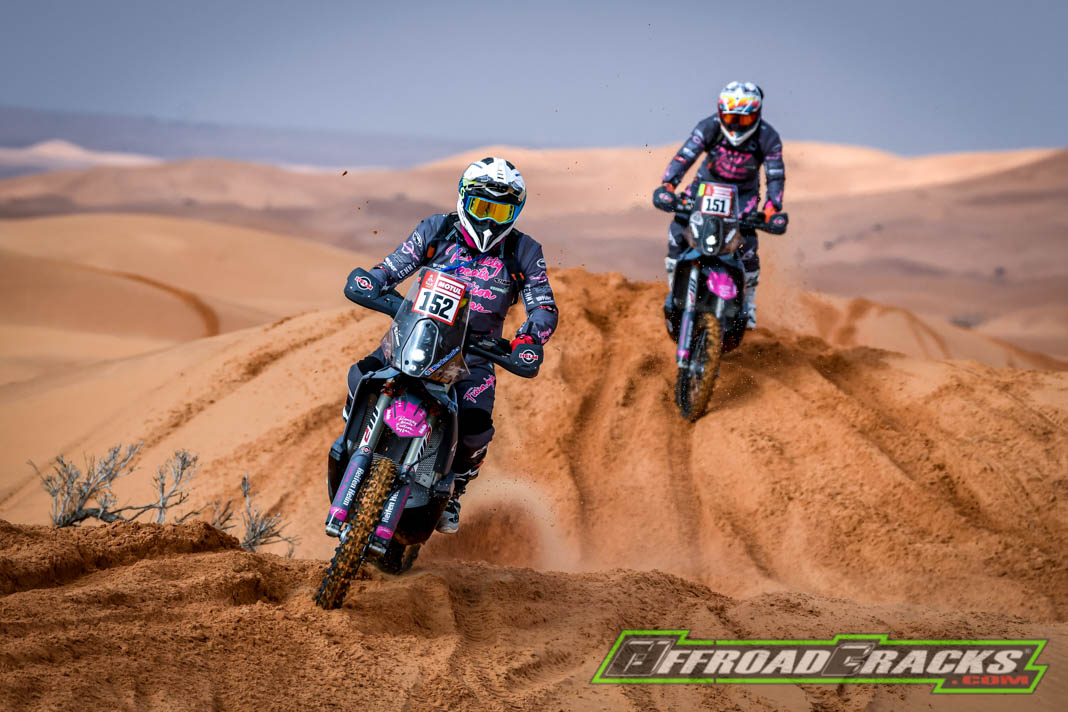

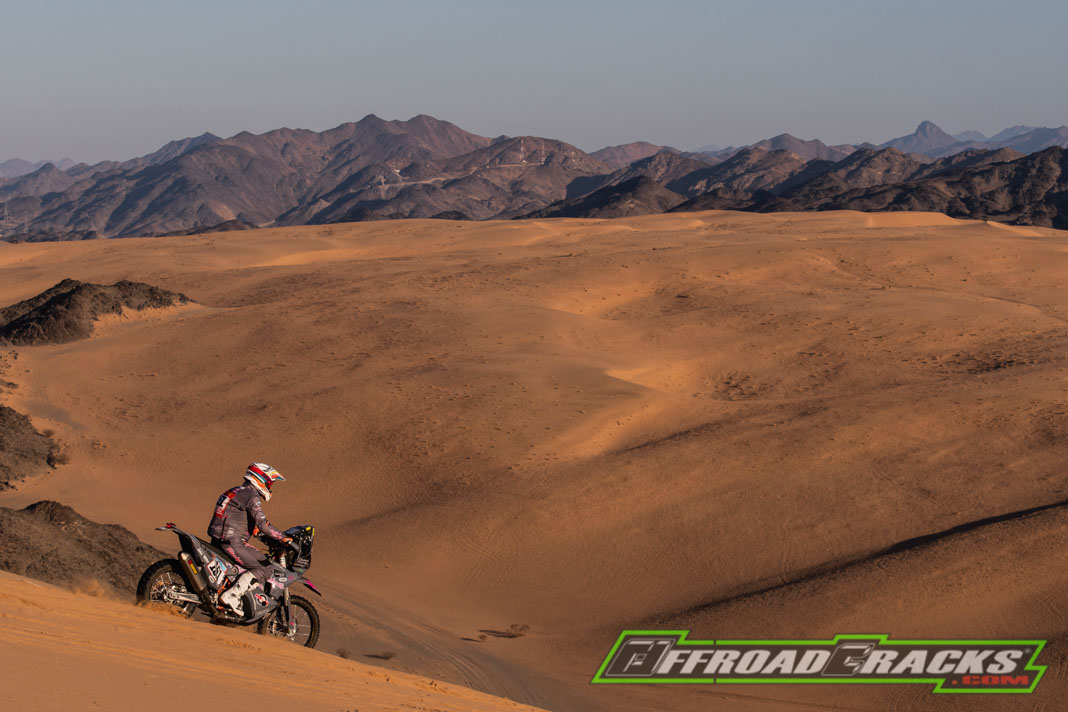

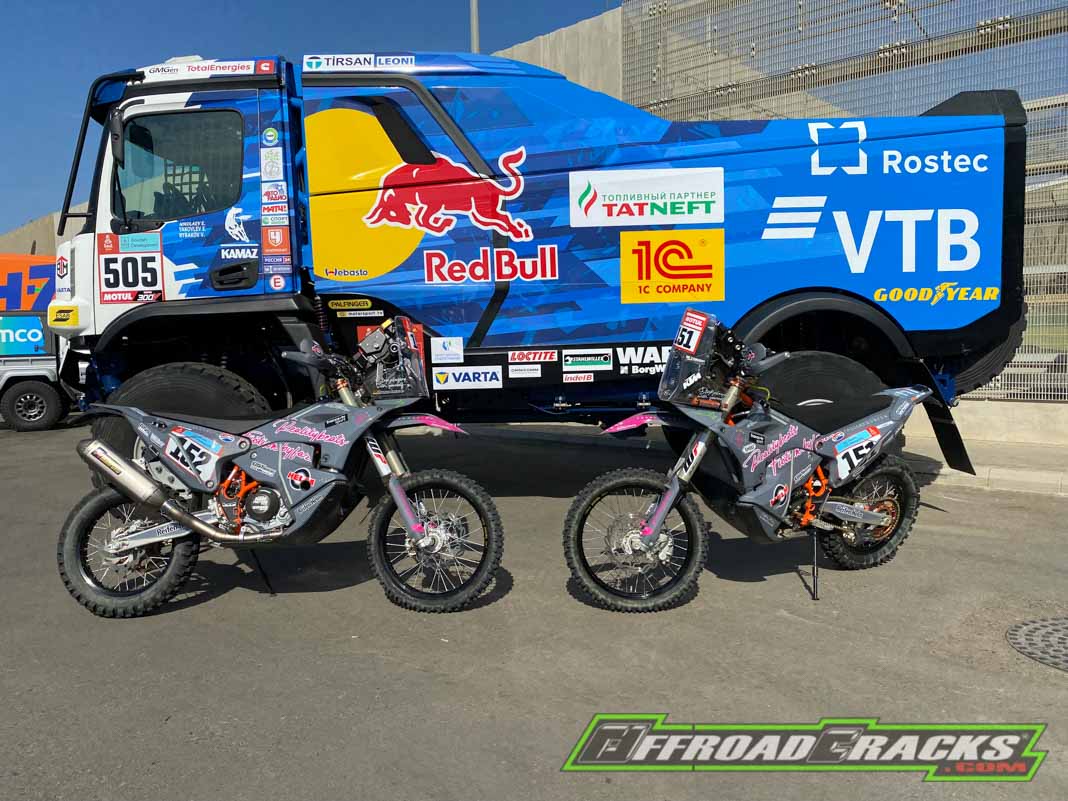
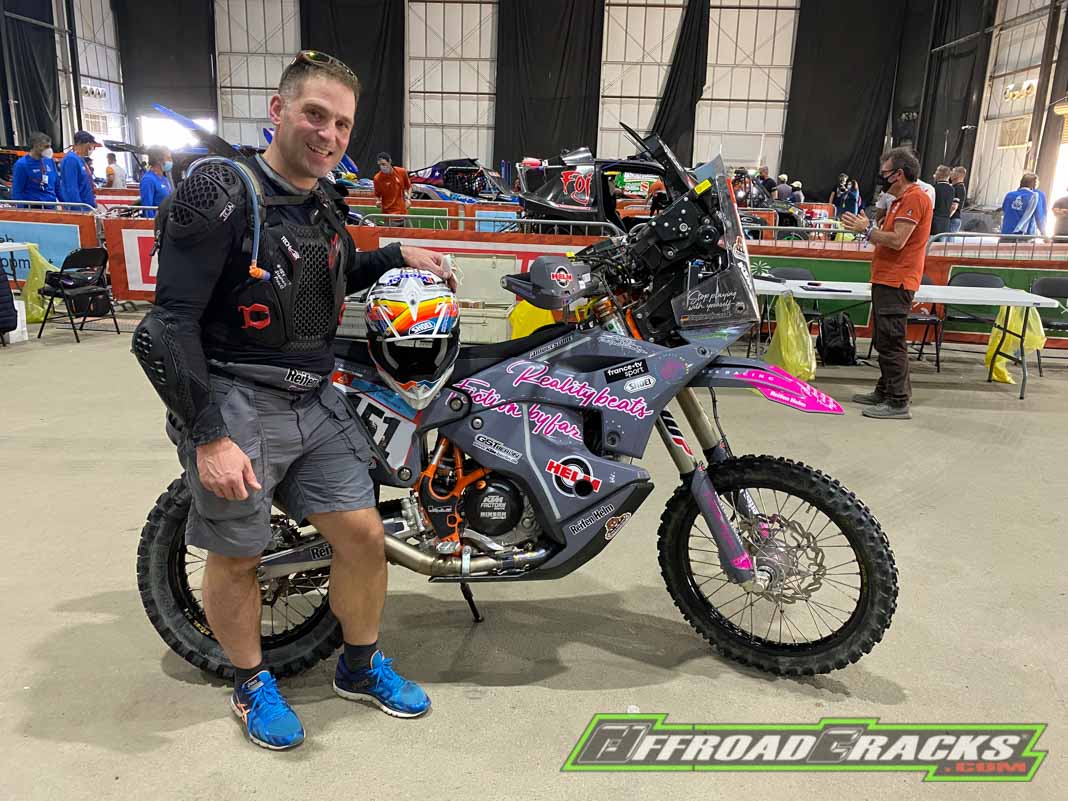
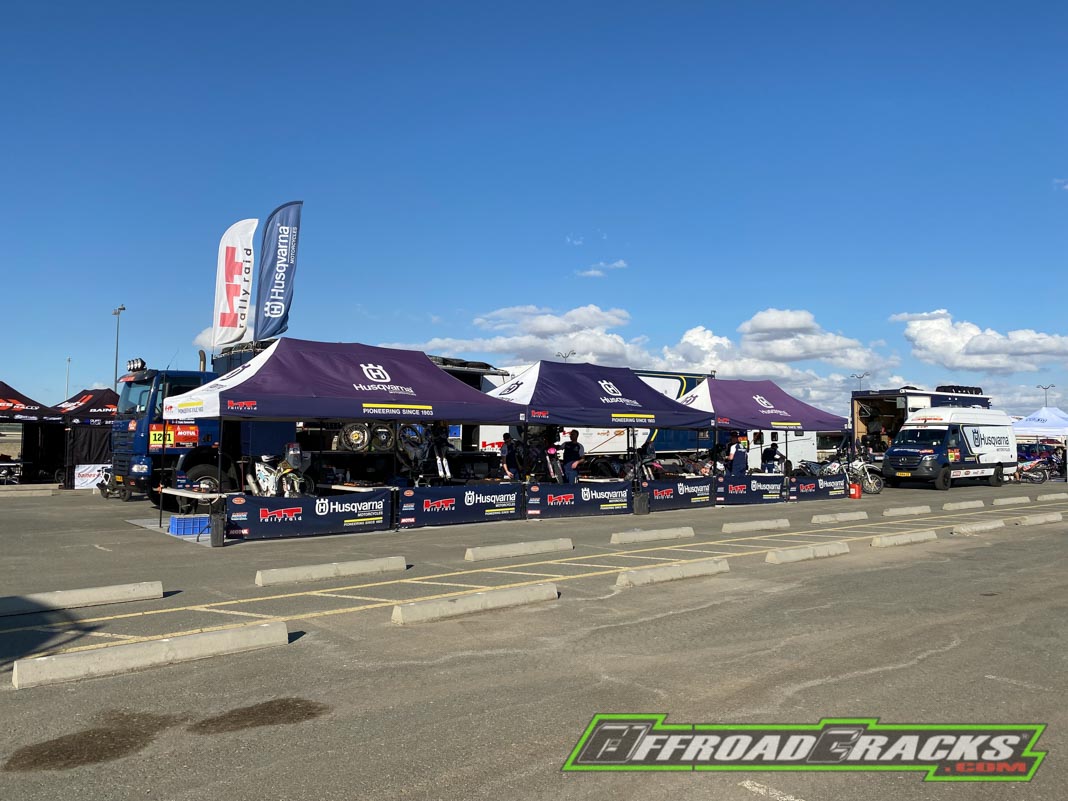
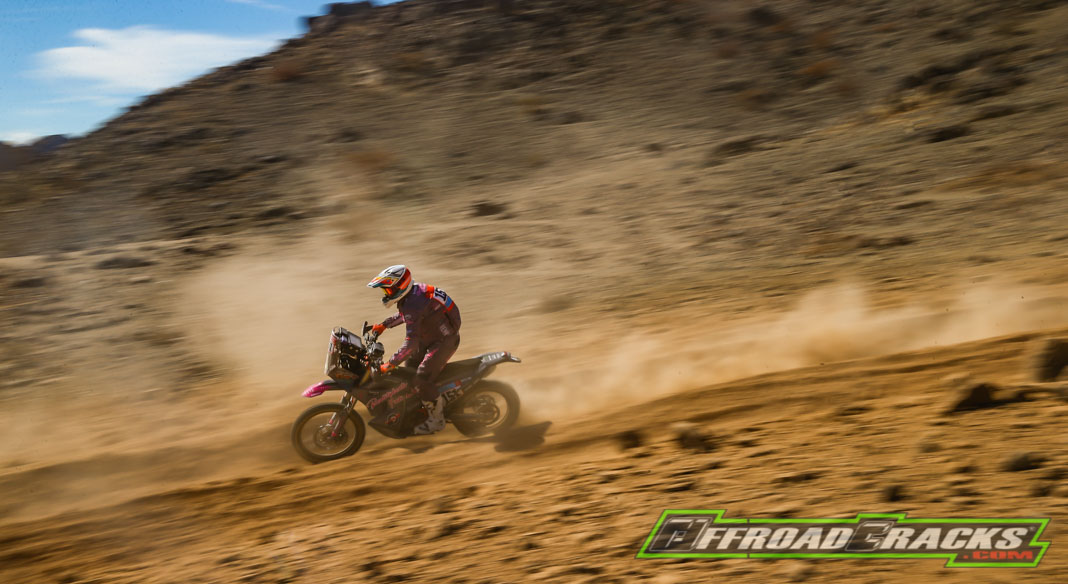
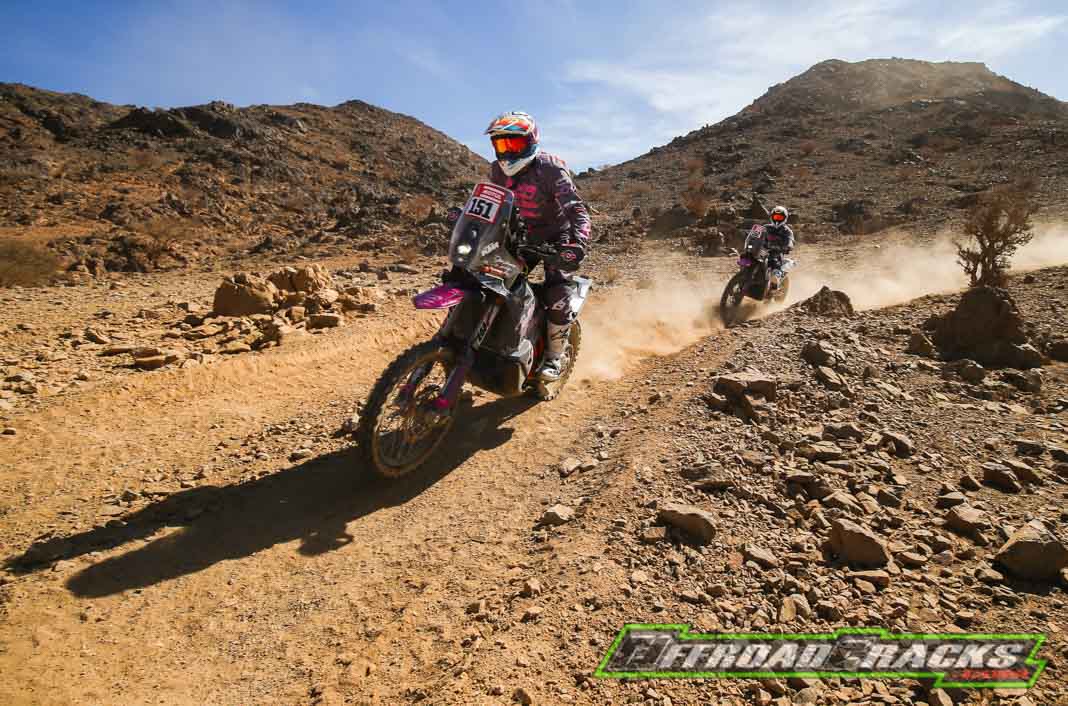
Bilder: RallyZone Bauer/Barni, FOTOP Andre Chaco, Stephan & Thomas Preuss
![]()
Two Northern Lights set off and fulfill their childhood dream. Stephan and Thomas Preuss, two boys from Hamburg (Germany), chat with Sascha Christof inside out.

8404 kilometers over twelve stages is the challenge that Stephan and Thomas have set themselves. It should be clear to everyone that you can’t just tackle the Dakar with a short-term entry. But the effort in the background is greater than you think. For the time being, I am not talking about providing the financial means, but about being able to immerse myself in the illustrious circle of participants. Because for this both had to recommend themselves with a letter of application to David Castera – Race Director. That’s right! It’s not even enough to pay an entry fee of 15,700 euros per participant, you have to prove that you’re not only interesting for the Dakar, but that you also have the appropriate rally experience to master the mother of all rallies. And you get this non-binding advance qualification if you have already competed in the Dakar, have contested the Andalusia or Morocco Rally or several rounds of the FIM Cross-Country Rallies World Championship as a qualification run or belonged to a factgory team. Ultimately, however, the independently acting event agency A.S.O. together with the committee will check out if you will get one of the 170 starting places.

The background: Thomas and Stephan Preuss have been following the spirit of the Dakar in all media since 1984 and dreamed of being able to contest this adventure even as young enduro riders. In 2020 the time had finally come, so that they wanted to be at the starting line of the Dakar. Unfortunately, due to uncertainties with Covid-19, the Dakar debut had to be postponed to 2021. They were unable to start in 2021 for personal reasons, so that it ultimately had to be postponed again to 2022. Of course, first they had to secure themselves financially, because such a Dakar participation quickly eats up 100,000 euros including bike per participant and depending on the service package. In addition, there is the full training and the administrative tasks, which are equivalent to a full-time job in addition to the daily work. Over 6000 kilometers on the bike were completed in addition to everyday life. That meant daily mountain biking along the Alster from home to work and back again. Fitness studios were closed due to Covid-19, so a rowing machine was bought so they could torture themselves for 45 minutes two or three times a week in their own basement and at the same time motivate themselves with Dakar videos. Every weekend they went to enduro and motocross training with their own enduros.

For the navigation training, the KTM Rally team boss Jordi Viladoms in Igualada near Barcelona was booked. Of course, Stephan and Thomas have gained a lot of rally experience in the years before. Whether at the Tuareg Rally, El Chott in Tunisia, Abu Dhabi Desert Challenge or the Hellas Rally in Greece, to name just a few. But doing the paperwork is even harder, says Stephan. Obtaining licenses from the DMSB in particular was not easy, since a corresponding sporting career is actually the basis for the necessary international A license. Unfortunately, there is no national rallying marathon in Germany where you can qualify for the World Rally Championship. It continues with the assembly of the equipment, the exchange of information with former participants and all the paper work for the nomination, acceptance and security. In terms of insurance, you are covered up to 30,000 euros by the A.S.O. entry fee, which, based on the experience of other participants, is sufficient in the ‚worst case‘ without any problems. Of course, a corresponding backup for the family had been provided in case of an emergency, so that action could also be taken at short notice and at most from Germany. Right from the start it was clear that every day at the Dakar was seen as a very intensive enduro tour with a unique adventure character and maximum priority on arrival. Placements have never been the subject of this adventure! Especially since, at the age of almost 50, the dizzy youthful dreams of becoming a factory driver were long gone.

After the service and logistics were booked through the Dutch HT Rally Raid Team, a professional partner with immense experience worked in the background and ensured the necessary freedom to only be able to concentrate on the event, the country and the people. A certain luxury compared to what is probably the cheapest entry-level class in the Dakar, the ‚Malle Moto/Original by Motul‘, where the drivers have to carry out all the work themselves with limited resources. But that doesn’t mean that Stephan and Thomas had a coffee trip ahead of them: they wake up every day between 3:30 and 5:30 in the morning, get dressed and had breakfast. Then checking the equipment including provisions and off they went from the paddock to the pre-start in the bivouac. Followed by tough connection stages with an average air temperature of four degrees and distances of 250 to 400 kilometers, only to reach the start of the special stage at sunrise – completly cold. Then it was time to complete between 350 and 465 kilometers on time. Arriving without injuries and technical failures was the ambitious goal and to finish the special stage before sunset if possible, in order to mix the recovery protein shake with the water from the organization as quickly as possible and absorb it. Because then again between 70 and 300 kilometers had to be managed back to the bivouac – with the protein from the shake the body can already start to regenerate on the connection stage. But that wasn’t the end of the day, because then followed the briefing of service and mechanics, showers, dinner and getting the personal clothes, equipment and provisions back in shape. Not to forget the evening team meeting including loading up the mandatory airbag and getting on the mattress between 6:30 p.m. and 9 p.m. The result of the sweaty adventure: Stephan crossed the finish line without a fall, while Thomas had two smaller ones and stretched his ligaments.

Conclusion of the Preuss brothers: Anyone who dreams of experiencing the Dakar should not hesitate and do everything in their power to make this dream come true. This experience changes everything sustainably and fundamentally. You are a different person afterwards – absolutely positive changes, according to Stephan and Thomas. In terms of organization, this event is certainly one of the best of the best, whether from the medical side, the proximity to the participants, taking care of all kinds of concerns, up to the supply of high-quality fuel, as well as great food and drinks. Not to be forgotten: The Saudi Arabian population is an enthusiastic audience, who inspires with their endless hospitality, which one would sometimes wish for in our regions.
Data & Facts
- Started riders (bikes) 2022: 168
- Arrived riders (bikes) 2022: 124
- Failure rate 2022: 26.2%
- Distance 2022: 4129 km special stages, 4275 km liaison stage; 8404 km total
- 12 stages & 1 rest day
- Rookie 2022: Mason Klein (USA, 9th place) KTM
- Legend 2022: Pablo Quintanilla (CHL, 2nd place) Honda Factory
- Malle Moto / Original by Motul: Arunas Gelazninkas (LTU, 28th place) KTM
- Stephan Preuss 109th place
- Thomas Preuss 121th place
PHOTO GALLERY – DAKAR 2022
































Pictures: RallyZone Bauer/Barni, FOTOP Andre Chaco, Stephan & Thomas Preuss

